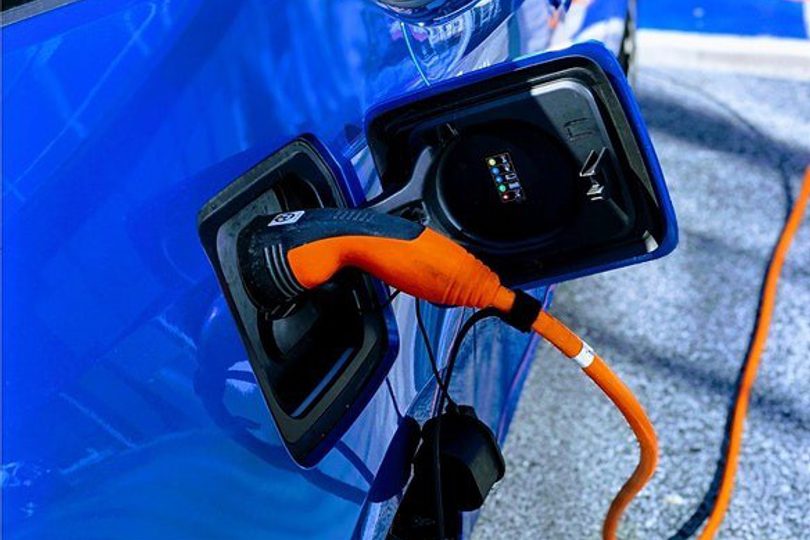
In this webinar, Sivapriya Mothilal Bhagavathy (Priya) and Esther Dudek will talk about electric vehicles (EVs), charging them, and the effect of this on the electricity network. Helen Gavin will host the webinar.
This webinar is organised by the Oxford Martin Programme on Integrating Renewable Energy and will take place via Zoom. Please register for the event on Eventbrite to receive joining instructions.
Priya will be speaking on a project called Park & Charge that focuses on Oxfordshire. Oxford suffers from poor air quality and the council is keen for residents to use electric vehicles to help reduce air pollution. Further a Zero Emission Zone is planned for implementation in 2020.
However, what options exist for people who would like to own an electric car but do not have a suitable space on their property to charge it, like a driveway? Oxfordshire has a high percentage of residents with limited access to parking. Without a dedicated space to park and charge, prospective EV owners face potential problems which can be a large barrier to uptake. Park & Charge project is a demonstration project that aims to develop a readily scalable and commercially feasible business model to provide accessible chargers for potential EV users with no access to home charging with minimal disruption to the public. As a part of this project, around 300 chargers would be installed across Oxfordshire.
However, for those EV owners with off road space to park and charge, what effect might that have on local electricity networks? The number of electric vehicles are increasing. Charging these EVs could have an impact on the network if not done smartly.
Esther will focus on domestic charging for people with off-street parking, and outline the aims and key learnings from the original Electric Nation project. Electric Nation was a two-year field trial of smart charging involving approximately 700 drivers who charged at home, across the Midlands, South West England and South Wales.
The project looked to see how smart charging could help to move demand for electric vehicle charging away from peak times thus mitigating any possible excessive demand. Six versions of smart charging systems were evaluated for both technical feasibility and customer acceptability. In her presentation Esther will summarise the findings of the project on charging behaviour, acceptability of smart charging, and the impact of time-of-use rewards to change charging behaviour.
Sivapriya Mothilal Bhagavathy
Priya is a post-doctoral research associate in the Energy and Power group at the University of Oxford. She has an undergraduate in Electrical Engineering, a masters in Energy Systems, and a PhD on "Barriers and solutions for high penetration of PV in the UK.
Priya has worked on a number of projects covering distributed generation and its grid integration, whole system energy analyses, power system modelling, renewable energy systems design and operation, and electric vehicles.
Esther Dudek
Esther is a Senior Consultant at the power engineering consultancy, EA Technology. She has nearly a decade of experience working on projects to integrate low carbon technologies with distribution networks. During this time she has focused on electricity energy storage, demand side management and electric vehicles.
From 2016 to 2019 she was the technical lead for Electric Nation – a trial of smart charging involving approximately 700 drivers. She was responsible for analysing and reporting on the data from the project, which showed both the technical feasibility and customer acceptability of using smart charging systems to manage the additional load created by domestic EV charging.
Helen Gavin
Helen is based in the Environmental Change Institute of the University of Oxford, working on the Programme on Integrating Renewable Energy. She is a sustainability professional, passionate about renewable energy and water resources, with expertise in a range of quantitative environmental issues. She has covered a range of roles including technical specialist, water and energy auditor, programme manager and knowledge exchange, in consultancy and in academia.
Keep in touch
If you found this page useful, sign up to our monthly digest of the latest news and events
Subscribe